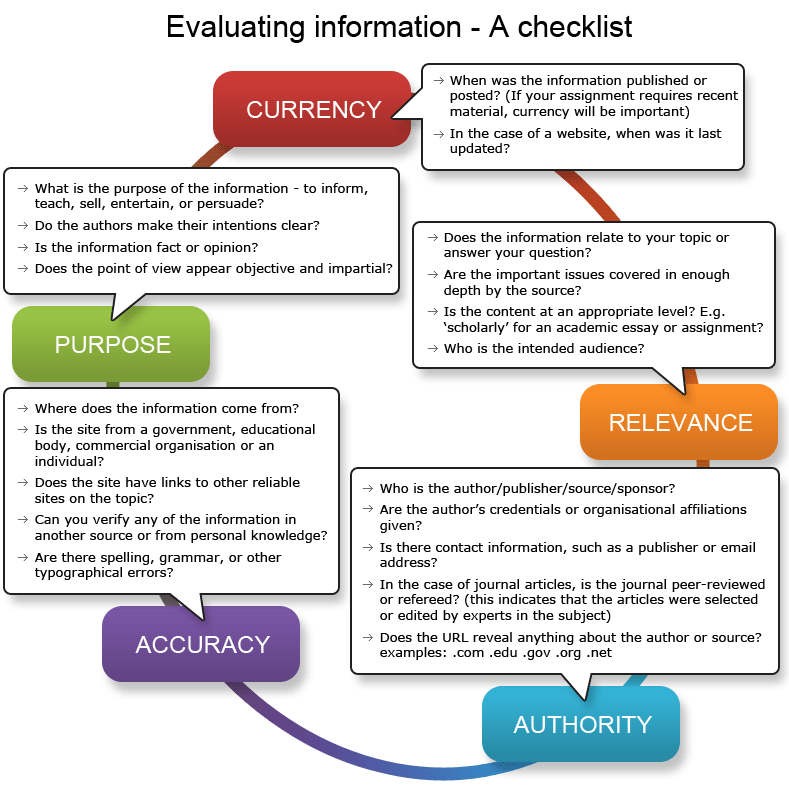Module Two - Business information sources
Business information

Business information is concerned with companies, theories, markets, trade, governments, finance and management. It is a volatile area of study, and developments can take place daily, or have their origins in the century before last.
Business information comes in many formats which can depend on the currency of the event dealt with.
| Take a look at the publication cycle showing the development of published information through time. |
Activity: Scroll down to view some of the various sources of information available. Move your mouse over the various types of information formats and sources.
|
|
Identify resources
It can be hard to know where to find the best information for your research. Do you need an overview of a topic, current news, in-depth analysis, case study material, industry profile, legislation or statistics? Your assignment question will usually give you some clues as to where to start.
Activity: This chart will help you decide what is likely to be the best information source for each purpose. Choose from the drop-down list below to see when different sources of information are appropriate.
|
|
Evaluate resources
When you search for information, you are going to find lots of it ... but is it accurate and reliable? You will have to determine this for yourself, and you can use the following principles as a guide. Different criteria will be more or less important depending on your situation or need.

Beyond the web
Students often use search engines such as Google when doing research. You should be aware that there are limitations to searching only the web. See the table below for a summary of the differences between sources found freely on the internet and those only accessible in Library databases.
When using search engines, an advanced search has more search options for more specific results.
| Library databases | Internet | |
|---|---|---|
| Information is accurate, and has been checked prior to publication | | |
| Editorial policy is clearly stated so it is easier to identify bias | ||
| You can identify the authority of the author | ||
| High quality resources are available to you without passwords, memberships or charges | ||
| Article will usually include a reference list | ||
| You can search a range of resources in a subject area | ||
| You can identify and verify all sources being searched | ||
| It is easy to search for company profiles, country information, industry reports | ||
| Includes older material | Some databases go back to the first issue of the journals | Patchy and only if you know where to look |
| Link is permanent and stable | ||
| You can do complex searching | ||
| You can limit search to type of resource, such as a scholarly article or full-text only | ||
| You can limit accurately by publication date | ||
| You can search up-to-date information | ||
| Quick and easy to search |
Social media as a source of business information
Other sources can be used to find and track business information, such as marketing strategies, company profiles and customer perceptions. These sources include social networking sites, blogs, Twitter, YouTube and the like.
Why would you use this type of search? To track what is being said about a product, a company, a person, an event as it happens. You can see what is trending, or set up alerts on topics of interest, or monitor responses to a posting.
- Social Mention searches in real time across multiple social media sites (blogs, Twitter, Facebook, video, images).
Social networking sites Blogs Video |  |
Test yourself
Some questions may have more than one correct answer.




